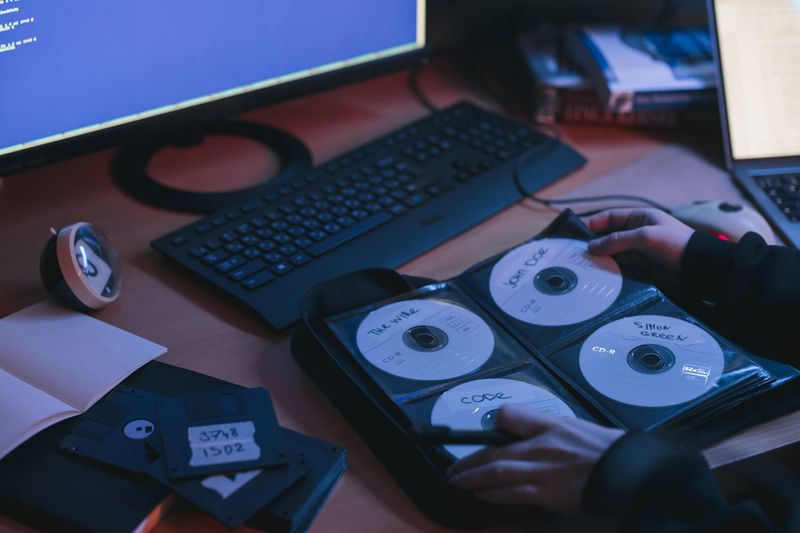Geopolitics Hackers Push Anti-Iranian Government Messages to Millions Via Breached App
By | September 1, 2023
An Iranian-focused hacking group known as Black Reward has carried out a new attack, this time targeting a popular financial services app used by millions of Iranians for digital transactions. The group, which has a history of targeting the Iranian government, pushed messages through the app calling for the downfall of Ayatollah Ali Khamenei and referencing the death of Mahsa Amini, an Iranian woman who died in police custody last year.
The Hack and Its Impact
The messages, which read “Death to Khamenei” and “We return to the street because the revolution continues. For woman, life, freedom,” were spread through the 780 app, a platform that facilitates financial transactions for online shopping, bill payment, and bank balance information. The app boasts over 6 million users. Videos of the messages began circulating on social media, sparking widespread discussion.
The targeted financial services app has not responded to requests for comment, leaving users wondering about the potential implications of the hack. It remains unclear what information may have been compromised or if any financial transactions have been affected.
The History of Black Reward
Black Reward first emerged on Telegram in 2022, shortly after the death of Mahsa Amini. The group gained attention when it released what it claimed to be private correspondence between the Iranian government and the International Atomic Energy Agency. The Iranian government accused a foreign country of unauthorized access, but Black Reward claimed to be an Iranian group fighting against the regime in support of women, life, and freedom.
The group’s Telegram channel has over 87,000 subscribers and has previously targeted the Fars news agency, which is managed by the Islamic Revolutionary Guard Corps (IRGC).
The Implications of Geopolitical Hacking
This recent hack highlights the increasingly complex and sophisticated nature of cyber warfare, particularly in the realm of geopolitical hacking. With state-sponsored hacking groups becoming more active, governments and organizations must prioritize their cybersecurity measures to protect sensitive information and critical infrastructure from potential attacks.
Geopolitical hacking can have far-reaching consequences beyond the realm of cybersecurity. It can manipulate public opinion, incite societal unrest, and further fuel existing tensions and conflicts. The use of hacked platforms to spread political messages raises important ethical questions about the boundaries of free speech, political activism, and the responsibilities of technology platforms.
The Need for Strong Internet Security
Recent incidents like this highlight the urgent need for individuals, organizations, and governments to prioritize internet security. Users should exercise caution when using digital platforms, ensuring they download apps and software from trusted sources and regularly update their security protocols. Companies must continue to invest in robust security measures and adopt best practices to safeguard user data and systems.
Governments must also play a crucial role by establishing comprehensive cybersecurity policies and regulations that require stringent security measures from both public and private entities. International cooperation and information sharing are essential in combatting the global threat of cyberattacks.
Editorial: The Role of Technology Companies
This hack raises questions about the responsibilities of technology companies in managing the content and security of their platforms. While respecting freedom of speech, companies must remain vigilant in monitoring and mitigating potential abuses of their platforms. They should work closely with governments and law enforcement agencies to identify and address security vulnerabilities, adopt best practices, and swiftly respond to incidents to minimize harm.
Furthermore, technology companies should prioritize user education and awareness, equipping individuals with the knowledge and tools to protect themselves online. This includes promoting the use of strong passwords, enabling two-factor authentication, and educating users about the risks of clicking on suspicious links or downloading unknown files.
As cyber threats continue to evolve and impact geopolitical landscapes, it is crucial for all stakeholders to collaborate and invest in the development of a safer, more secure digital ecosystem.

<< photo by cottonbro studio >>
The image is for illustrative purposes only and does not depict the actual situation.
You might want to read !
- The Proposed SEC Cybersecurity Rule: An Unfair Burden on CISOs
- The Rise of Ransomware: A New Light Shines with Free Key Group Decryptor
- Industry Insights: Evaluating the Ripple Effects of Qakbot Botnet Disruption
- Splunk Raises Security Bar with Patch for High-Severity Flaws
- Espionage Unveiled: Earth Estries’ Covert Operations Shake Governments and Tech Titans
- Cyber Espionage: The Rise of Chinese Android Spyware
- Privacy Breached: Unveiling Cyber Attacks on Linux, Android, and Skype
- The Shifting Landscape of Cyber Threats: Unveiling the Modified Open Source ‘SapphireStealer’ Information Stealer
- A Deceptive Threat: Unraveling the New SuperBear Trojan Targeting South Korean Activists
- Hidden in Plain Sight: The Elaborate Ruse of Russian Disinformation on New York Times
- Unmasking the Web: Exposing the Elaborate Chinese ‘Spamouflage’ Network
- The Great Wall of Disinformation: Unveiling the Largest Pro-Chinese Influence Operation in History




